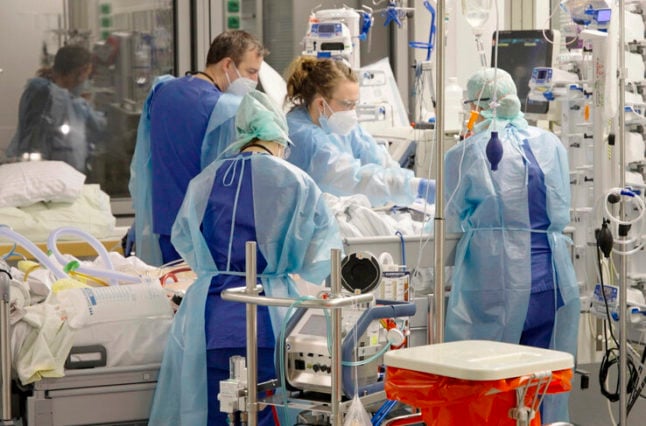The prognosis, published in the situation report on Friday, predicts that the 7-day incidence of cases will rise to around 350 per 100,000 inhabitants by April 12th. That would be significantly more than the previously high water mark, which was reached on December 23nd with a 7-day incidence of 214.
Responsible for the dramatic forecast is exponential growth of the B.1.1.7 variant, commonly known as the “British variant”, which now makes up roughly 50 percent of all new cases in Germany.
The B.1.1.7 variant is believed to be both more transmissible and more aggressive than older strains of the virus.
“The weekly case count of B.1.1.7 shows a very steady rate of growth, doubling approximately every twelve days from calendar week two to calendar week nine,” the RKI states.
READ MORE: Will it be possible to go on holiday in Germany over Easter?
In the worst case scenario, the 7-day incidence could rise above 500 by mid-April; in the best case it will rise above 200, the RKI forecasts. Even the best case scenarios would be on a par with the case load in late December, when the country’s intensive case capacity was put under serious strain.
The prognosis does not take into account the effects of relaxations of lockdowns, or tightening of the lockdown regime. In recent weeks the German states have been tentatively loosening the restrictions by opening schools and hairdressers.
On Monday morning, the Robert Koch Institute reported 6,604 new cases within 24 hours, an increase of 1,593 in comparison with a week ago. A further 47 deaths were also recorded, a drop in comparison with the previous week.
The 7-day incidence rose on Monday to 82.9 cases per 100,000 inhabitants, continuing a trend that started on February 14th, when the 7-day incidence had dropped to 60.
SEE ALSO: How (and where) to get a free rapid Covid-19 test in Berlin



 Please whitelist us to continue reading.
Please whitelist us to continue reading.
just sort out the sodding vaccine shortage. How hard can it be?